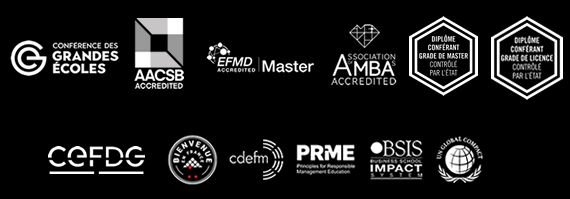The future belongs to the whole-brained leaders. A new study by Accenture shows that 82% of the C-suite executives intend to reskill in the next three years. Using a “both-brain” approach – and a much larger mixture of data and empathy – is what can lead to success on a long-term basis for worldwide leaders.
New pressures such as emerging technologies, shifting customer demands, new market entrants are converging, and create fast change that is impacting all industries, making today’s operating environment more complex than 10 or 20 years ago. A study that enrolled over 200 C-Suite executives and 11 400 employees in China, France, Germany, Italy, Spain, UK, and the US has shown that a new leadership model is emerging – one that puts into work the two sides of the brain: the “left” scientific hemisphere and the”right” creative brain thinking.
The study led by Accenture focused on “how” leaders need to respond to the disruption in the most efficient and effective manner possible: using the whole-brain approach. Today’s business landscape requires both “brain thinking” capabilities of an enterprise to function at their full potential. More than being skilful in “science” of business, C-suite executives need to be adroit at the “art of people”. Failing to do so will result in financial loss and profitability decrease or stagnation.
Accenture identified a “supergroup” of employees and customers who feel self-empowered to drive change in the companies they work for and buy from. A group you cannot afford to ignore, the Pathfinders are seen as the new best friend of a savvy C-suite. Future leaders and high performers, they will leverage the power of social media to make their voices heard: 79% of Pathfinders used social media to express their feelings regarding the companies where they work; 71% think that social media has an influence on the behaviour of the companies they buy from.
But these high-performing, high-voiced individuals also have also high expectations from the company leadership: they expect both traditional, left-directed skills, based on data and analytics, and non-traditional, right-directed skills that focus on human skills, such as empathy, self-awareness, intuition. Characteristics such as critical reasoning, effective decision-making, results orientation are not enough for today’s leaders who need whole-brain “must-haves” to thrive in this fast-changing world.
Left-directed skills and behaviours
- Making tough decisions effectively
- Having a clear vision and strategy for the team
- Understanding of new tech& having the right techskills to advise teams
- Results orientation
- Critical reasoning
- Data analysis and interpretation
- Ability to lead others
Right-directed skills
- Ability to influence, coach and empower others
- Creative thinking and experimentation
- Ability to synthesize diverse thinking and viewpoint creating an inclusive team environment
- Being vigilant to the external environment
- Empathy and self-awareness
- Willingness to embrace and enact change
- Intuition
While 89% of the C-suite have formal training in left-directed degrees, 65% report that right-brain skills such as intuition, empathy and self-awareness, and vigilance to the external environment are underdeveloped. Some leaders also admit some weaknesses in the left-directed skill of their understanding of new technology and having the technical skills needed to advise their teams.
Only 8% of C-suite members use a whole-brain approach today, but 82% intend to use it in the next three years. And it’s worth the extra effort: the financial indicators of companies that use a balanced approach are stronger on average over a three-year period: 22% revenue growth, 34% profit growth.
9 in 10 companies all over the world are beginning to take steps in filling the gaps in the skills of their managers: 55% are reskilling members of their C-suite executives, 46% bring in outside talent.
The EMLV Master in Management provides both the theoretical and practical knowledge students need to lead in a complex, cross-border, multicultural environment. Being a world-class manager means being up to date with modern business development practices and having the skills to manage an international team. EMLV students need soft skills to manage different projects thorough their studies and tackle the diverse set of challenges they face during the transversal weeks: a unique pedagogical tool which allows engineering, management and digital students to work together on case studies confronting real issues for companies (Artificial Intelligence and citizenship, smart cities, industry 4.0…).





















